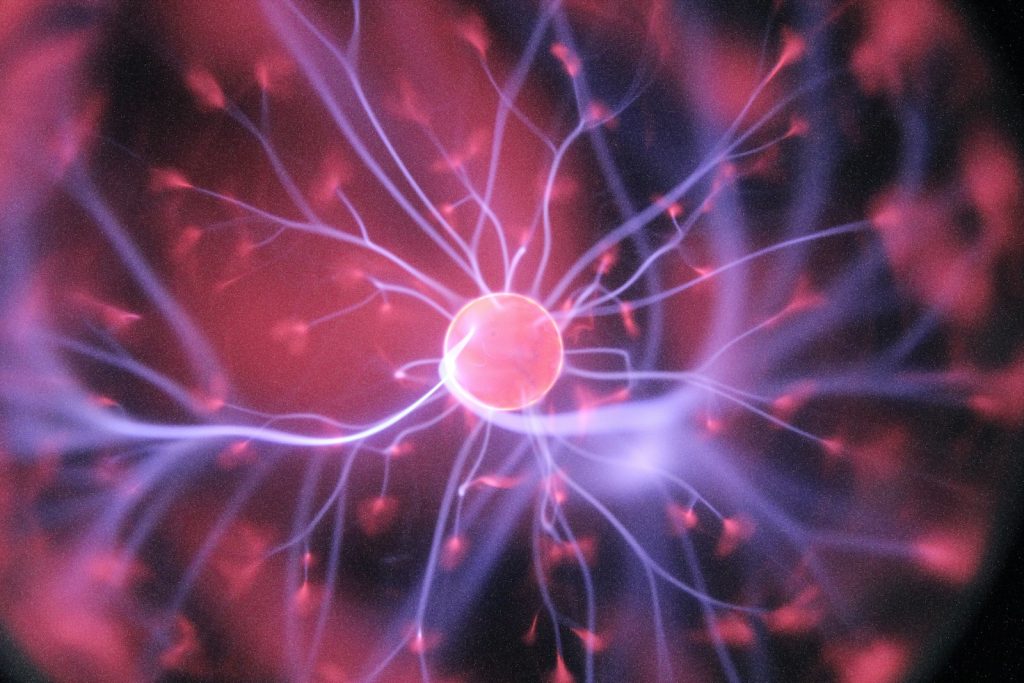Ever wondered why some people seem to attract good fortune while others don’t? Or why a sugar pill can sometimes work just as well as actual medicine? It’s not magic, it’s science. In this article, we’re going to delve into the fascinating world of the law of attraction and the placebo effect.
The law of attraction suggests that our thoughts can shape our reality. Think positive, attract positive. On the other hand, the placebo effect demonstrates how our mind can influence our body’s healing process. It’s all about the power of belief.
The Law of Attraction: Understanding the Basics
We’ve established how belief can powerfully influence reality, so let’s turn our focus to the Law of Attraction – a concept that very much rests on this premise. To many, it could sound like a pseudoscientific concept plucked straight out of a fantasy novel. However, its principles persist in modern-day psychology and self-help literature.
The Law of Attraction, or LOA, is based on the idea that like attracts like. Sounds simple, doesn’t it? But dig a little deeper and you’ll discover layers of meaning beneath this seemingly straightforward premise.
According to proponents of the LOA, the universe responds to the vibrations of our thoughts and feelings. Each thought or emotion we have sends out a unique vibrational frequency. Positive thoughts emit positive frequencies and thus attract positive experiences. Conversely, negative thoughts put out negative frequencies attracting undesirable experiences. In a nutshell: you attract what you think about most.
Underpinning this law is the idea that thoughts are energy, a premise that finds support in quantum physics. Quantum theory suggests that at their core, all things, including thoughts, are made up of energy. Each thought we have alters our energy field and in turn, the universe around us.
What this means, in practice, is that thoughts aren’t just outputs of the brain, trapped inside our minds. They interact with the world around us, having real-world impacts. If you’re continually thinking about success, you’re more likely to attract it.
It does sound a bit mystical, doesn’t it? And yet, it’s hard to dismiss the law entirely. For instance, consider how often you’ve experienced a so-called ‘self-fulfilling prophecy.’
Applying the principles of the Law of Attraction is not just a matter of having positive thoughts. It also involves feeling good, visualizing positive outcomes, using affirmations and taking inspired action. These practices all combine to generate a higher frequency to attract desired results.
However, skeptics argue that good vibrations alone won’t guarantee success. Hard work, persistence, making the most of opportunities – these are essential factors that should not be discounted in the pursuit of goals.
How Thoughts and Beliefs Shape Our Reality
The science of psychoneuroimmunology has greatly contributed to our understanding of how thoughts and beliefs shape our reality. This interdisciplinary field has provided a wealth of insight into how our mental and emotional state can influence physical health.
Our brain is a powerful tool. It’s set up to respond not only to physical sensations but also to thoughts and emotions. Neuroscience reveals that each thought we have produces a specific neurological response. For example, imagining biting into a juicy, tart lemon can activate similar neurological pathways as to when one actually bites into one. This demonstrates how powerful our minds are.
Beliefs also play a significant role in shaping our realities. When we firmly believe in something, our brains will seek out information to support those beliefs, thus reinforcing our perceived reality. This is known as the confirmation bias. If you believe the world is a scary place, you’ll be more likely to notice stories of crime and danger.
Similarly, the placebo effect is another powerful illustration of how our beliefs can shape our reality. Placebo treatments — in health practices, these are typically inactive or neutral factors — have been shown to improve health outcomes. The key to this effect is belief. If a patient genuinely believes that a placebo pill is a powerful medication, they’ll often experience real, physiological improvements.
Law of Attraction and placebo effect, both emphasize on how our thoughts, beliefs, and expectations can create our experiences. From a scientist’s perspective, this further confirms how mind and body aren’t separate entities but rather, they’re intertwined and impact one another. It showcases the crucial role of thoughts and beliefs in crafting our realities.
Our thoughts and beliefs carry more weight than we often realize. They shape our actions, behaviors, and ultimately our outcomes. Harnessing these pivotal aspects of our mind could potentially lead to improved physical outcomes, greater success, and a more fulfilled existence. It’s a burgeoning field with significant potential for scientific exploration and personal growth.
The Science Behind the Law of Attraction
Imagine that your mind’s a magnet – it’s pulling in experiences that align with your thoughts and feelings. How does this work? Let’s delve into the fascinating science behind the Law of Attraction.
Our thoughts emit vibrational frequencies. Just as a radio sends and receives specific wavelengths based on the station you’ve tuned into, our minds continue this two-way communication with the universe. We’re constantly sending out vibes and pulling in experiences that are on our wavelength. It’s as if we’re subtly instructing the universe, “Hey, this is what I’m in sync with. Bring me more.”
The brain is the engine that powers this mechanism. Brain activity induces electromagnetic fields with specific wavelengths based on the nature of our thoughts and emotions. Studies demonstrate that positive thoughts like love and joy generate higher frequency wavelengths while negative notions such as fear and anxiety radiate lower frequencies.
By mastering your mindset, indeed you’re influencing the energy field around you. It’s interesting how our perception of reality alters as we focus our thoughts on certain aspects. This focus strengthens the associated wave frequencies in our mental scape – it’s something psychologists coined as the confirmation bias.
Take a moment to reflect on this. Every time you’ve felt doubtful about an upcoming event, you’ve probably noticed signs indicating that things might not go as planned. On the flip side, when you’ve been sure of success, positive indicators seem to pop up magically. That’s the confirmation bias and the Law of Attraction blending together. As I like to put it, your perception’s wrapping your reality into its own unique package.
The Law of Attraction’s far from a mystical idea. It’s grounded in established principles of psychoneuroimmunology. This interdisciplinary concept explores the influence of mental and emotional states on physical health. It doesn’t just relate to the mind-body-soul connection but also connects deeply with the Law of Attraction.
So, that’s a broad outline of how the Law of Attraction operates. From the wavelengths generated by the brain to shaping our perception – it’s a process that’s exciting to explore. I assure you that understanding this can pave the path for a more fulfilled existence. Shedding light on the underlying science gives you the tools to navigate it effectively.
Debunking Common Misconceptions About the Law of Attraction
First, let’s clear the air. Many people believe the Law of Attraction is a magic wand that’ll materialize their desires instantly. It’s not about instant gratification. It’s a process. It’s about consistently aligning our thoughts, feelings, and actions to match our desired vibrations.
Similarly, some think it only involves positive thinking. But, it’s more than that. It involves emotional alignment and active faith. It’s not sufficient to merely think positively; we need to feel positively and take appropriate actions.
One more misconception that’s often heard is that the Law of Attraction encourages victim-blaming. People think it implies that someone attracts all negative experiences because of their thoughts. This isn’t true. Unfortunate events like accidents or illnesses are part of the universal human experience. The Law of Attraction emphasizes how we can attract a reality of resilience and healing through these events.
Lastly, there’s a belief that if we dwell on a certain thought, the universe will bring exactly that. But, the universe doesn’t respond to our thoughts alone, it responds to our “ vibrational energy.” So, if we’re feeling lack while thinking about abundance, we’re more likely to create lack.
Just remember:
- Thoughts alone aren’t enough.
- The universe responds to our emotional, vibrational energy.
- The Law of Attraction is about emotional alignment and active faith.
- It’s not a tool for victim-blaming; rather, it’s a path to resilience.
Understanding these points can help us apply the Law of Attraction more effectively. It’ll enable us to focus on emotional alignment, take positive actions and recognize that we are not victims but resilient beings in control of our vibrational energy.
To summarize, the Law of Attraction isn’t about magic or purely positive thinking; it’s a process that involves aligning our thoughts and actions with desired outcomes. On this path, we encounter challenges that test our resilience but ultimately lead us to growth. The direction doesn’t lock down upon adversity; instead, it paves the way for amazing new possibilities.
The Placebo Effect: How Belief Can Impact Healing
Continuing with our exploration of the power of the mind, let’s delve into the Placebo Effect. This intriguing phenomenon demonstrates the impact of belief and expectation on our physical health. It’s an excellent example of how our thoughts can influence our wellbeing.
The Placebo Effect is a well-documented medical phenomenon where patients, believing they’ve received medication, experience an improvement in their health condition. Think of it as the body’s innate capacity to self-heal, fueled by belief. Fascinatingly, it’s been observed in clinical studies that people have alleviated their symptoms or diseases simply by taking a sugar pill they thought was a potent drug.
Indeed, the power of belief is substantial. In numerous clinical trials, the Placebo Effect has been seen to rival even potent medications in terms of efficacy. It’s an empirical example of how our beliefs, much like the principles of the Law of Attraction, can shape our reality, right down to our physical health.
Need proof in numbers? Let’s look at some data that back up this astonishing claim.
| Study | % of Placebo Effect |
|---|---|
| Pain Relief | 36% |
| Depression | 50% |
| Anxiety | 60% |
It’s clear from the above data that our beliefs can have a consequential impact on our health and wellness. An understanding of the Placebo Effect thus provides a basis for appreciating the mechanisms behind the Law of Attraction.
So, continuing our understanding of this mental-health relationship, the following section will explore in-depth how our emotional frequencies can affect our physical reality and the practices to align with the desired vibrations.
Exploring the Connection Between the Law of Attraction and the Placebo Effect
In delving deeper into the fascinating interplay between our mind and reality, it’s crucial to draw parallels between the Law of Attraction and the Placebo Effect. Let’s start this exploration by first understanding the Law of Attraction.
The Law of Attraction, in its most basic terms, is a universal principle stating that we attract into our lives whatever we focus on – good or bad. It’s all about energy frequencies; like attracts like. So, when you tune your thoughts and emotions to a certain level of frequency, you become a magnet for experiences matching that frequency.
Similarly, the Placebo Effect operates on belief and expectation. When we believe that a sugar pill is actual medicine, our body responds as if it’s receiving the real deal, leading to observable improvements in health conditions. In this case, our mind is tricked into a specific frequency of belief, mirroring a real healing process.
Then comes the intriguing connection. Both the Law of Attraction and the Placebo Effect emphasize the profound impact of our beliefs and expectations on our physical reality. One powerful way they intersect is through the mechanism of self-healing. Just as we can attract positive experiences by aligning our thoughts with desired outcomes, we can similarly initiate our body’s healing process by leveraging the power of belief inherent in the Placebo Effect.
Understanding these underpinnings injects a fresh perspective into how we can shape our reality. By consciously manipulating our thought frequencies, not only can we attract desirable experiences through the Law of Attraction, but we can also command our body’s self-healing ability, evident in the Placebo Effect.
Moving forward, we’ll delve into how we can leverage the combined potency of these phenomena in daily life, with concrete practices to align our emotional frequencies and harness the power of belief for enhanced health and wellbeing.
Unveiling the Mechanics of the Placebo Effect
Allow me to dive into the mechanics of the Placebo Effect. This phenomenon, in essence, is your body’s ability to heal itself – powered by nothing more than your belief. It’s a testament to the power of expectation and psychological suggestion.
Let’s consider a common example illustrating this remarkable effect. A person suffering from a headache takes a pill, believing it to be a potent painkiller. In reality, it’s only a sugar pill, void of any medicinal properties. Yet miraculously, their headache dissipates.
To the observer, this seems like magic or trickery. But it’s nothing more than the Placebo Effect in action. The person expected to feel better and so they did. Because our bodies can respond unconsciously to our beliefs.
It’s not all about the mind tricking the body though. Real physiological changes occur within the body due to the Placebo Effect. When you believe that you’re taking a painkiller, your brain reacts by releasing natural chemicals called endorphins. These act as natural pain relievers, effectively reducing or eliminating the pain.
Although not completely understood, the psychological foundations of this process are sure significant. Our beliefs shape our reality in such potent ways that they can manifest in physical changes. That’s why the Placebo Effect holds such profound potential within clinical and psychological research.
The parallels between the Placebo Effect and the Law of Attraction are equally noteworthy. They both affirm the capacity of belief to invoke change, whether that’s health improvement or the attraction of positive events. They underline the mantra: “Belief is a powerful tool.”
Alter your thought frequencies consciously. You’ll find that it’s possible to manipulate your own reality. You can shape your experiences, not just through the Law of Attraction, but by commanding self-healing powers evident within the Placebo Effect.
So the next time you find yourself skeptical about the power of belief, consider the Placebo Effect. It’s an undeniable testament to the sheer potency of our thoughts and beliefs. Dive deeper into its mechanics, and you’ll unveil the power of the most powerful drug – the human mind.
The Role of Expectations in the Placebo Effect
Just as belief is vital to the Law of Attraction, so are expectations when dealing with the Placebo Effect. Our minds are programmed to anticipate results and act accordingly. These anticipations affect our brain chemistry and have a direct impact on our physical health.
When we expect a positive outcome, our body floods us with a wave of helpful hormones and neurotransmitters, such as dopamine and oxytocin. These little chemicals act as a form of natural painkiller, inducing an overall sense of well-being and relief from discomfort.
For instance, imagine I’m anticipating a delicious meal. My brain starts producing extra dopamine—a chemical closely associated with reward and pleasure—just thinking about the food. This is our body’s natural reaction to positive expectations.
The reverse is also true. If we expect something painful or unpleasant, our body gears up for the anticipated danger by releasing stress hormones, such as cortisol. These hormones heighten our senses, making us more alert but also more susceptible to feelings of tension and unease.
The importance of setting positive expectations can’t be overstated. These expectations serve as foundations not just for initiating the Placebo Effect, but also for enhancing our quality of life. No wonder we often hear about the criticality of maintaining a positive outlook!
It’s essential to actively shape our expectations with positive thoughts. This can create a cascade of beneficial physiological changes, helping us combat ailments, maintain good health, and foster general wellbeing.
Better yet, anyone can leverage the tremendous power of positive expectations. Work on your anticipatory mindset. Convince yourself that you’re on the path to improvement, and watch as your body makes it happen.
However, it’s key to note that while this mental power is potent, it’s not a replacement for proper medical treatment. Deliberate positive thinking and properly administered healthcare should go hand in hand.
The Placebo Effect in Modern Medicine: Implications and Applications
In contemporary healthcare practices, the Placebo Effect is both a notable phenomenon and a practical tool. Its implications extend beyond merely sugar pills to encompass holistic patient interactions. Many healthcare professionals rely on the power of this effect to augment the patient’s treatment, highlighting the mind’s critical role in our health journeys.
Consider the practice of employing sham surgeries as a part of clinical trials. Researchers have implemented placebo surgical trials, where patients either receive an actual surgery or a mock procedure. Astonishingly, in many studies, patients who receive sham surgeries often report improvements nearly on par with those who undergo the actual operation. This showcases the Placebo Effect’s potential and the mind’s power in enhancing treatment efficacy.
Additionally, the rise of complementary and alternative medicine (CAM) underscores the Placebo Effect’s impact. CAM therapies work on the principle of enhancing the body’s internal healing capacities. Its prevalence indicates patients’ active roles in their health, often augmented by their conviction in the treatment’s effectiveness, a classic example of the Placebo Effect in action.
Recognizing the Placebo Effect’s value does not mean that we undervalue the role of conventional medical intervention. Instead, it suggests that our mental state, beliefs, and expectations could supplement these interventions to optimize health outcomes. It’s about engaging patients in their health management, integrating the mind’s prowess with medical advancements.
In essence, this integration of belief-driven healing within conventional medical practices forms the crux of what’s termed integrative medicine. Integrative medicine combines traditional medical treatments with CAM therapies, harnessing the Placebo Effect’s power alongside medically-approved treatments.
Consider the following data highlighting the use of the Placebo Effect within healthcare:
| Healthcare Aspect | Placebo Effect Utilization |
|---|---|
| Sham Surgeries | Enhancing treatment efficacy |
| Complementary & Alternative Medicine | Augmenting internal healing capacities |
| Integrative Medicine | Combining traditional and belief-based healing |
Harnessing the Power of the Mind: Practical Tips for Applying the Law of Attraction and the Placebo Effect
You might wonder, “How can I make the Law of Attraction and the Placebo Effect work for me in my life?” Well, let’s dive into that subject. What’s most crucial to remember is that these concepts revolve around the central principle of belief. So, here are a few practical tips to apply these phenomena to enhance your life’s quality.
To start with, practice positive self-affirmation. It’s quite simple. You need to positively talk to yourself, reinforce optimistic thoughts, and believe that what you’re affirming is achievable. With persistent affirmations, you can tap into the inherent power of your mind.
Next, visualize your goals. It’s one thing to say, “I’ll achieve my dreams,” and quite another to visualize yourself doing so. Visualization is a powerful tool. Try to paint a mental picture of your goal, feel the success, and experience the joy and satisfaction that comes with it. By doing this, your brain will begin to perceive that these visualizations are reality, thus boosting the chances of actualizing your goals.
Consider incorporating mindfulness and meditation into your routine. These practices have proven effective in reducing stress, improving mental clarity, and enhancing overall well-being. They can help you remain focused and aligned with your goals, thus enforcing your belief system.
Don’t forget the role of gratitude. Being thankful for what you already have gives you a sense of contentment and will make you more receptive to receiving more abundance. It’s a way of telling the Universe you’re ready for more blessings.
But how do you apply the Placebo Effect? Consider introducing positive expectations into your medical regimen. If you’re on medication, believe in its efficacy. Know that it’s working for your good. Moreover, seeking integrative medicine that combines conventional medicine and belief-driven healing enhances the chances of treatment success.
These are just a few of the many practical ways to harness the power of your mind to transform your life, health, and overall well-being. Whether it’s through the Law of Attraction or the Placebo Effect, your beliefs hold significant power. Harnessing this power can unlock a world of possibilities, not just in healthcare but in various aspects of your life.
Conclusion
So, it’s clear that our minds hold significant sway over our lives and health. Harnessing the Law of Attraction and the Placebo Effect isn’t just about wishful thinking. It’s about fostering a strong belief system and cultivating positive habits. By practicing self-affirmation, visualization, mindfulness, and gratitude, we can tap into our mind’s potential and influence our reality. Similarly, integrating positive expectations into our healthcare approach can enhance the Placebo Effect’s benefits. Remember, it’s not just about what happens to us, but how we perceive and respond to it. The power of belief can indeed be transformative. Embrace it and see the change unfold in your life.
Dr. Harlan Kilstein is a certified yoga teacher, hypnotherapist, and a teacher of the Law of Attraction since 1975.
After an immersion in yoga and his certification by the Yoga Alliance, he began studying mudras and invented Finger Healing.



